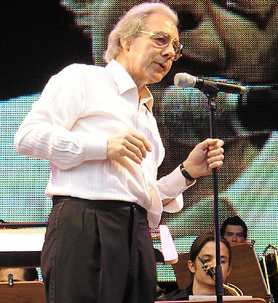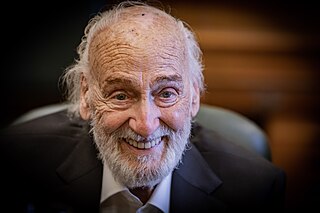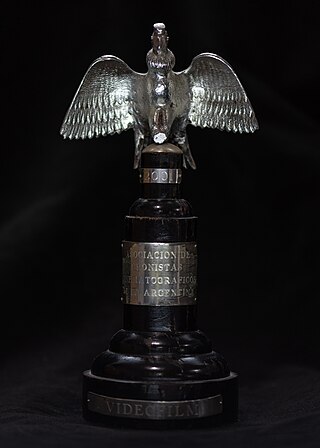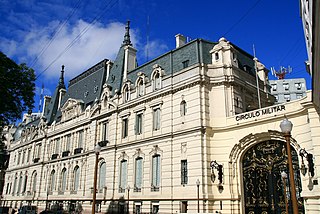This article needs additional citations for verification .(April 2019) |
This article needs additional citations for verification .(April 2019) |
| Title | Director | Actors | Genre | Notability | ||
|---|---|---|---|---|---|---|
| 1981 | ||||||
| Amante para dos | Hugo Sofovich | Alberto Olmedo | ||||
| La Conquista del paraíso | ||||||
| Los Crápulas | ||||||
| Cosa de locos | Enrique Dawi | Palito Ortega, Carlos Balá, Enzo Bai | Musical comedy | |||
| De la misteriosa Buenos Aires | ||||||
| Gran valor en la facultad de medicina | Enrique Cahen Salaberry | Juan Carlos Calabró, Adriana Aguirre, Monica Gonzaga, José Cibrián | Comedy | Written by Abel Santacruz | ||
| El Hombre del subsuelo | ||||||
| Momentos | ||||||
| Title | Director | Cast | Genre | Notes |
|---|---|---|---|---|
| Mire qué lindo es mi país | ||||
| Mientras me dure la vida | ||||
| Los Parchís contra el inventor invisible | Mario Sabato | Constantino Fernández, Óscar Cañada, David Muñoz, Yolanda Ventura | Comedy kids | |
| La Pulga en la oreja | ||||
| Las Vacaciones del amor | ||||
| Los Viernes de la eternidad | Héctor Olivera | Thelma Biral, Héctor Alterio, Nora Cullen, Guillermo Battaglia | Drama | Award-winning |
| Visión de un asesino | ||||
| El Violinista | ||||
| Ritmo, amor y primavera | ||||
| Sentimental | Sergio Renán | Entered into the 12th Moscow International Film Festival | ||
| Tiempo de revancha | Arturo Maly | |||

Osvaldo César Ardiles, more commonly known as Ossie Ardiles, is an Argentine football manager, pundit and former player.
The following is an overview of events in 1981 in film, including the highest-grossing films, award ceremonies and festivals, a list of films released and notable deaths.

Evita is a musical with music by Andrew Lloyd Webber and lyrics by Tim Rice. It concentrates on the life of Argentine political leader, activist and actress Eva Perón, the second wife of Argentine president Juan Perón. The story follows Evita's early life, rise to power, charity work, and death.

Adolfo Aristarain is an Argentine film director and screenwriter who is famous for his filmic sophistication and subtle examination of issues of political oppression. Variety has deemed him "a master filmmaker."

Boris Claudio "Lalo" Schifrin is an Argentine-American pianist, composer, arranger, and conductor. He is best known for his large body of film and TV scores since the 1950s, incorporating jazz and Latin American musical elements alongside traditional orchestrations. He is a five-time Grammy Award winner; he has been nominated for six Academy Awards and four Emmy Awards.

The National Reorganization Process was the military dictatorship that ruled Argentina from 1976 to 1983. In Argentina it is often known simply as the última junta militar, última dictadura militar or última dictadura cívico-militar, because there have been several in the country's history and no others since it ended.

Héctor Benjamín Alterio Onorato is an Argentine theatre, film and television actor, well known both in Argentina and Spain.

Gustavo Alfredo Santaolalla is an Argentine composer and musician. Known for his minimalist approach to composing, he rose to fame for creating the scores for Brokeback Mountain (2005) and Babel (2006), for which he received two Academy Awards for Best Original Score in consecutive years. Santaolalla also gained recognition for his work on The Last of Us game series, composing the 2013 title and its 2020 sequel. He returned to reprise his themes and co-compose the score for the 2023 television adaptation.

Cinema of Argentina refers to the film industry based in Argentina. The Argentine cinema comprises the art of film and creative movies made within the nation of Argentina or by Argentine filmmakers abroad.

The Argentine Film Critics Association is an organization of Argentine-based journalists and correspondents. The association presents the Silver Condor Awards honoring achievements in Argentine cinema. The awards are considered Argentina's equivalent of the Academy Awards.
This is an index to pages listing Argentine films ordered by year of release. For an A-Z list, see Category:Argentine films.

The cinema of Paraguay has historically been small. However, this has begun to change in recent years with films like El Toque del Oboe (1998); María Escobar (2002); O Amigo Dunor (2005), which competed for Best Movie in the Rotterdam International Film Festival; Hamaca Paraguaya (2006), which was screened at the Cannes Film Festival, gaining critical acclaim both in Paraguay and abroad; 7 cajas (2012); Latas Vacías (2014); and Luna de Cigarras (2014).

Héctor Olivera is an Argentine film director, producer and screenwriter. Olivera worked mainly in the cinema of Argentina, but also has directed or contributed to several films made for the United States market.

Enrique Carreras was a Peruvian-born Argentine film director, screenwriter and film producer. He was one of the most prolific film directors in the history of the cinema of Argentina and a prominent figure of the classical era of Argentine cinema.

Armando Bó was an Argentine film actor, director, producer, screenwriter and score composer. He began his career as an actor and producer during the Golden Age of Argentine cinema of the 1930s and 1940s. In 1956, Bó met Isabel Sarli and cast her as the lead actress in his film Thunder Among the Leaves (1957), in which she made the first full frontal nude in the history of Argentine cinema. Bó and Sarli became both romantic and commercial partners, and the duo turned to the sexploitation genre in the 1960s and 1970s, these films being considered emblematic of the genre.

Tiempo de revancha is a 1981 Argentine political thriller film written and directed by Adolfo Aristarain and starring Federico Luppi, Julio De Grazia, Haydée Padilla, and Ulises Dumont. It was produced by Héctor Olivera and Luis O. Repetto. The music was composed by Emilio Kauderer. The film premiered in Argentina on July 30, 1981, and won 10 awards, including the Silver Condor for Best Film and Best Film in the Montréal World Film Festival.

Lucas Demare was an Argentine film director, screenwriter, and film producer notable for his work during the classical era of Argentine cinema and beyond.

Hilda Isabel Gorrindo Sarli, nicknamed Coca, was an Argentine actress. She was known for starring in several sexploitation films by Armando Bó, especially in the 1960s and 1970s. She began her career as a model, becoming Miss Argentina and reaching the semi-finals of Miss Universe 1955. She was discovered by Bó in 1956 and made her acting debut the following year with Thunder Among the Leaves, in which a controversial nude scene featuring Sarli made it the first film to feature full frontal nudity in Argentine cinema.

Pedro Jorge Rigato Delissetche, better known by his stage names George Rigaud, Georges Rigaud or Jorge Rigaud, was an Argentine film actor who appeared in 194 films between 1932 and 1981.

The Paz Palace is a former mansion in Buenos Aires, Argentina, housing the Military Officers' Association, a social club maintained by the Argentine military.